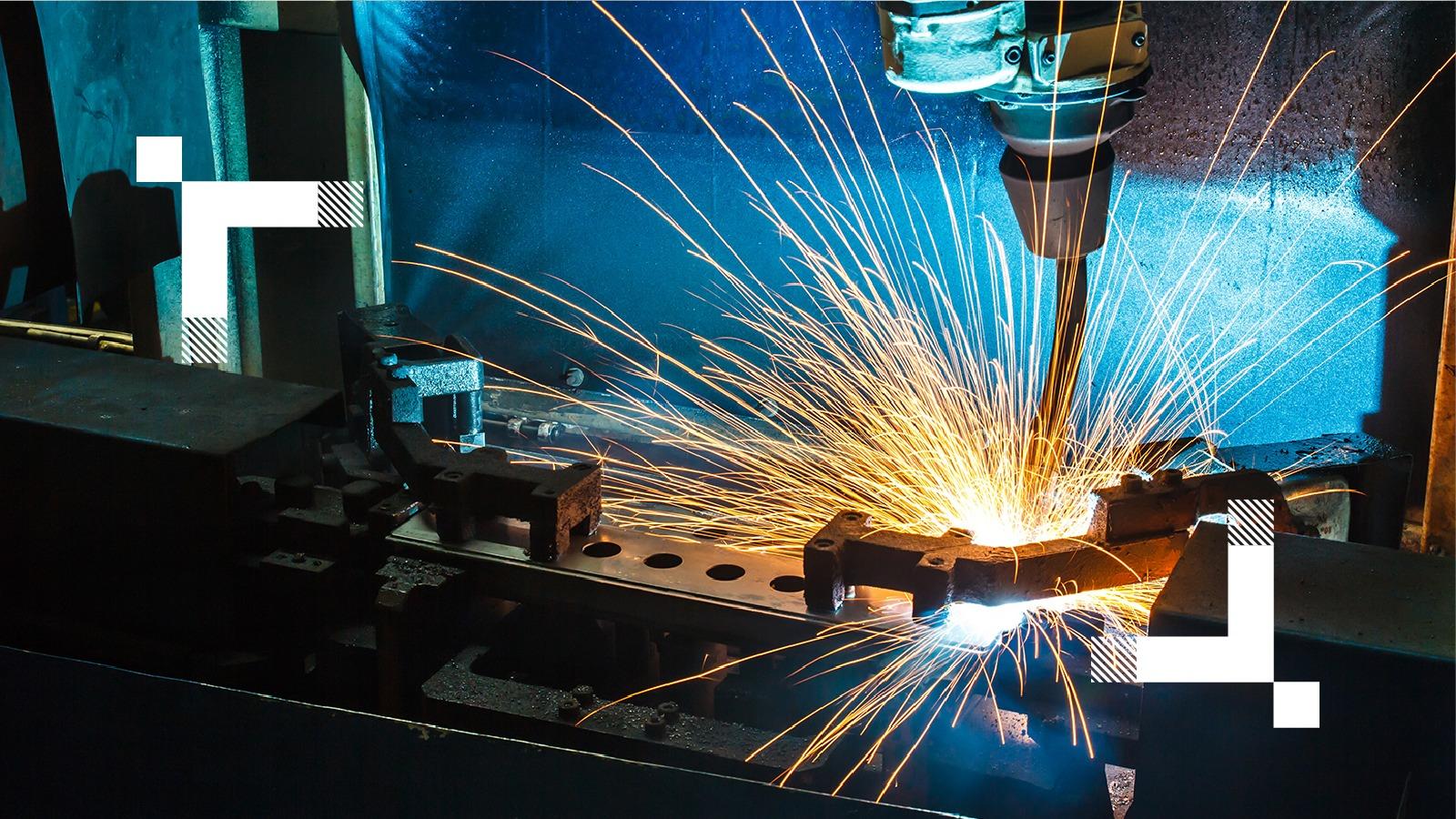M&A in industrials and services is set to accelerate in 2025 as companies focus on expansion, consolidation, and portfolio optimisation.
In a shifting market, industrials and services (I&S) companies are navigating M&A with a dual focus on growth and resilience. While deal volumes and values declined by 15% and 3% in 2024, respectively, 2025 is expected to bring renewed activity since thriving companies seek expansion and struggling firms explore strategic solutions. Key themes driving dealmaking globally include investments in energy transition, AI, and automation, as companies sharpen their competitive edge and adapt to evolving market demands. And what about developments in Switzerland?
Digital transformation remains a key focus for industrials and services, but M&A trends will vary by sub-sector. Business services is poised for significant deal growth, driven by demand for essential services, stable cash flows, and consolidation opportunities. Engineering and construction (E&C) and industrial manufacturing are expected to see stable to rising activity, supported by energy transition investments and efficiency gains from automation, robotics, and AI. Automotive dealmaking will be driven by capacity rationalisation and restructuring among OEMs and suppliers, with continued but more targeted investment in EV-related services and infrastructure due to slowing market demand.
Dealmakers are increasingly optimistic about M&A, viewing it as a key tool for portfolio optimisation, strategic growth, and improved capital allocation, according to PwC’s latest Annual Global CEO Survey. Companies are actively divesting non-core or underperforming assets to focus on profitability and expansion, with a growing trend towards corporate spin-offs – following GE’s split into three public companies in 2024 – suggesting further conglomerate break-ups in industrials and services in 2025.
Geopolitical shifts and rising protectionism are reshaping deal strategies, with new tariffs and supply chain risks pushing companies to nearshore operations and limit global expansion. As a result, dealmakers are prioritising domestic M&A, although regional dynamics vary. In the US, optimism is fuelled by lower interest rates and easing inflation, creating the conditions for larger, transformative deals, particularly in aerospace and defence (A&D) and industrial manufacturing. In Europe and Asia, uncertainty around growth, inflation, and interest rates continues to impact buyer confidence, widening the valuation gap and increasing the use of alternative financing and deal structures such as earn-outs, partnerships, and joint ventures.
Private equity is set to play a growing role in M&A, with significant dry powder ready to be deployed. PE firms are particularly active in construction, consolidating smaller firms impacted by economic pressures, and in automotive supply chains, where roll-up strategies help drive scale and efficiency. These consolidations present opportunities for PE platforms to align M&A with strategic objectives, creating long-term value and sustainable outcomes.
Global M&A trends in industrials and services
Automotive
We are optimistic about automotive M&A activity in 2025, as companies respond to policy changes, tariff considerations, and ongoing market challenges. Despite improving macroeconomic conditions, the sector continues to face production overcapacity, margin pressure, and slowing consumer demand, prompting consolidation and portfolio adjustments. OEMs and suppliers are rightsizing their operations by divesting non-core and distressed assets, restructuring global footprints and optimising capacity to meet future demand. For example, General Motors recently announced restructuring measures for its Chinese joint venture. At the same time, companies must balance investment in internal combustion engine (ICE) assets with the transition to hybrid and electric vehicles and prioritise digital advancements and software innovation to remain competitive.
Supplier consolidation is also gaining momentum as companies seek scale to improve margins, while private equity funds pursue roll-up strategies to improve efficiency. A recent example is the Italian automotive supplier Proma Group, which acquired the assets of Recaro Automotive Germany and signed a licensing agreement for the Recaro brand. In addition, strategic partnerships, particularly in battery production and EV technology, remain key to reducing costs and accelerating development. In November, Volkswagen and Rivian announced a joint venture worth up to $5.8 billion to develop next-generation electrical architecture and software for future EVs, with the aim of reducing development costs and scaling up new technologies faster.
Industrial manufacturing
Corporate spin-offs, divestitures of non-core operations, and ongoing innovation in manufacturing processes are likely to drive M&A activity in the industrial manufacturing sector in 2025. Companies are streamlining their portfolios to focus on core businesses, leading to an increase in carve-outs and restructuring of distressed assets. A notable example is Johnson Controls’ July 2024 sale of its residential and light commercial HVAC operations to sharpen its strategic focus.
Technological advancements, particularly in AI, machine learning, and smart factories, are also fuelling deal activity as companies seek to enhance operational efficiency. In October 2024, Siemens announced a $10.6bn acquisition of Altair Engineering to strengthen its position in industrial software and simulation technologies. Sustainability remains a key theme, with manufacturers shifting towards more sustainable materials to manage supply chain risks and improve margins. As regulatory certainty improves, confidence among executives and dealmakers is expected to rise, further accelerating M&A activity across the sector.
Engineering and construction
We expect M&A activity in the engineering and construction sector to increase in 2025, as companies respond to regulatory changes, interest rate cuts, and shifting capital priorities. Energy transition, grid modernisation, and infrastructure projects will drive dealmaking, while easing inflation is likely to create opportunities for acquisitions and divestitures.
Commercial construction faces challenges with stalled projects and refinancing risks, but data centre construction remains strong. Residential construction continues to attract investment, with recent deals such as MITER Brands’ $3.1bn acquisition of PGT Innovations and Home Depot’s $18.3bn acquisition of SRS Distribution reflecting efforts to address rising costs. Engineering services firms are attracting private equity interest, while ‘acqui-hire’ deals are helping to address labour shortages. AI adoption is accelerating, improving project management and efficiency. As the sector evolves, M&A will be key for companies seeking scale, innovation, and competitive advantage.
Business services
M&A activity in the business services sector is expected to be robust in 2025, driven by demand for specialists to help companies manage complex challenges such as climate change, technological change, and geopolitical risk. Companies providing compliance support, niche knowledge services, testing and certification, and managed services – particularly in cybersecurity – are attracting significant investor interest. Private equity continues to play a key role, with funds acquiring professional services firms in IT, accounting, legal, and administrative services for their stable cash flows and scalability. Recent deals include New Mountain Capital’s investment in Grant Thornton US in May 2024, Hellman & Friedman and Valeas Capital Partners’ investment in Baker Tilly US in June 2024, and Cinven’s majority investment in Grant Thornton UK in November 2024.
IT services, particularly cybersecurity and cloud-based managed services, are gaining traction as firms move beyond high implementation costs to more stable, recurring revenue models. AI and data analytics are also reshaping consulting, with companies investing in workforce skills to drive value. However, human capital management, including recruitment and outsourcing, faces headwinds from slower hiring and cost-cutting measures, especially in the UK and US. This decline may be partially offset by continued demand for training services to address skills shortages.
“I remain cautiously optimistic about Swiss I&S deal activity in 2025, driven by the rightsizing that organisations will undertake on a regional and sectoral basis, private equity firms playing a major role in driving deal volumes (via both acquisitions and exits), and Swiss corporates once again demonstrating their track record of strategically navigating geopolitical events successfully.”
Devinder Singh,Partner, Deals Industrials & Services, PwC SwitzerlandM&A volumes and values in 2024
Between 2023 and 2024, deal volumes and values in industrials and services declined by 15% and 3%, respectively, but they remained around pre-pandemic levels. The downturn reflects ongoing macroeconomic and geopolitical challenges, with regional and sectoral variations. Regionally, deal volumes fell by 19% in EMEA, 17% in the Americas, and 9% in Asia Pacific, where India saw a 9% increase, and China showed signs of stabilising despite a 10% decline. Deal values, however, rose by 27% in the Americas – driven by six megadeals (deals worth more than $5bn) – while EMEA and Asia Pacific saw declines of 20% and 17%, respectively.
Sector performance also varied. Deal volumes declined across all sectors, with aerospace and defence (–35%), automotive (–18%), business services (–18%), industrial manufacturing (–14%), and engineering and construction (–8%) experiencing different levels of contraction. Deal values fell in automotive, business services, and industrial manufacturing but increased in A&D and engineering and construction.
And how about M&A trends in the Swiss industrials and services sectors?
There appears to be a strong headwind from the rather negative cocktail of issues that Swiss industrial companies are confronted with today: the threat of trade barriers being imposed by the Trump administration, which is fast turning into reality; rising long-term interest rates (partly driven by sticky inflation in major economies) despite the rate cuts seen in 2024; and ongoing uncertainty with conflict zones in Europe and the Middle East. In addition, the Swiss franc continues to be the currency of choice for safe-haven investments, keeping the pressure on the export-oriented Swiss industrial sector to think innovatively and offer high-value solutions to its customer segment. Last but not least, the inheritance tax initiative launched by the Young Socialists continues to add to the uncertainty for family-owned small and medium-sized enterprises in Switzerland.
Against this backdrop, there is more than one silver lining. Time and again, Swiss industrial companies have proven their resilience in weathering storms such as the ones mentioned above, and have emerged stronger and sharper in the medium term. M&A will play a vital role in helping Swiss industrial and service companies achieve this performance. Rightsizing of operations through regional or sectoral strategic spin-offs followed by acquisitions (in a different region or sector) will be key and will steer companies towards even more thorough due diligence and prepare clear value creation plans early in the deal process. Deals would therefore be expected to take longer to complete, and the due diligence will need to be ever more intense and cover a broad range of topics to ensure that risks are properly mitigated, and integration can be planned on the basis of the right information.
The often mentioned ‘dry powder’ at the disposal of PE firms is expected to grow even further this year, forcing the PE sector to make bold moves towards deal activity, while alternative financial buyers such as family offices or other evergreen-structured vehicles continue to challenge the PE players. With the average PE holding period reaching an all-time high in 2024, PE exits are expected to finally come to market and drive deal volumes.
Additionally, Swiss companies with a healthy balance sheet may choose to deploy capital (or increase their existing allocation) via M&A in certain jurisdictions to minimise the threat of tariffs in the medium term. On a positive note, the recently signed free trade agreements (FTAs) with India and Thailand (and the one with the Mercosur countries in advanced stages) should provide Swiss industrial firms with wider and preferential access for their goods and services in these growing markets. In particular, M&A – whether through strategic JVs or outright acquisitions – can play a crucial role in helping Swiss industrial SMEs leverage the FTA with India, given the unique $100bn investment commitment that Switzerland and other EFTA nations are seeking to make in India over the next 15 years.
“In the near term, the threat of tariffs continues to force companies back to the drawing board in terms of their focus on capital deployment – and by extension on M&A. However, once the dust has settled, M&A will become a key tool to capture opportunities that will come up because of the tariffs and regulations, such as strategic JVs or outright acquisitions in selected geographies.”
Devinder Singh,Partner, Deals Industrials & Services, PwC Switzerland







